Research

Student Researcher Perseveres, Earns NSF Graduate Research Fellowship
UNC Charlotte’s Devin Clegg sees a strong linkage between his selection for a prestigious National Science Foundation Graduate Research Fellowship and lessons he learned when conducting biological sciences research and playing football with the Charlotte 49ers. Clegg is affiliated with the research labs of marine biologist Adam Reitzel and molecular and cell biologist Richard Chi.
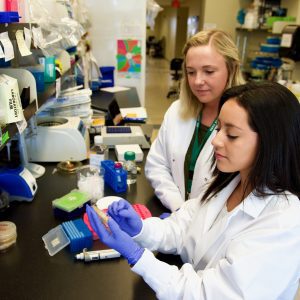
New Collaboration Seeks To Increase Life Sciences Graduates, With NSF Support
Academically talented, low-income students who want to study biological sciences can find life-changing opportunities through a new regional partnership among UNC Charlotte, Gaston College and Rowan-Cabarrus Community College. This innovative initiative is possible as a result of $4.5 million in funding from the National Science Foundation’s Scholarships in Science, Technology, Engineering and Mathematics (S-STEM) program.
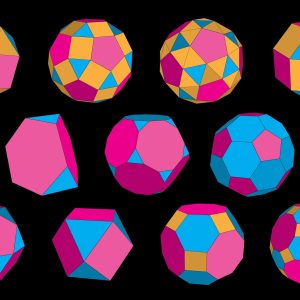
Mathematician Finds Beauty In Math, Physics, Materials Science
The solution to an intricate mathematical problem is a thing of beauty for UNC Charlotte researcher Xingjie (Helen) Li – much like a poem, with its economy, precision and ability to give joy. “With a poem, you often just use a few words to describe something,” Li says. “And in mathematics, we also use a few expressions to describe a problem. It’s complicated stuff, but you know there is a unique path to this complex thing. And through the truth of mathematics, you can identify this unique path.”

Study Suggests Future Sleep Breathing Issues For College Football Players
A new UNC Charlotte study with college-age football linemen suggests that the roots of a sleep breathing health problem in football players may begin early and points to the need to fully assess the potential consequences of college training, particularly for linemen who quit conditioning after college.
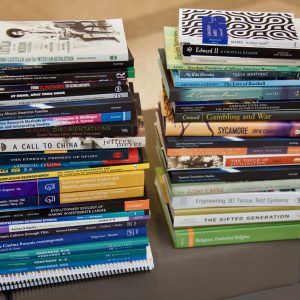
College Authors, Editors Publish 42 Books In 2017
Faculty authors in the College of Liberal Arts & Sciences at UNC Charlotte in 2017 edited and published 42 books that were diverse in topic ranging from language and culture studies to physics and optical science. Texts also included topics such as public relations, history, religious studies, and African American studies. The books included textbooks, research publications, novels, and other forms.
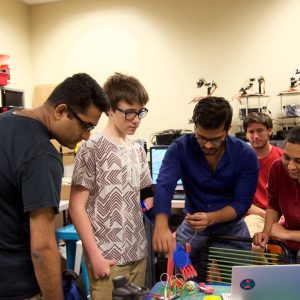
Helping Hand: With Hands-on Research, Students Use 3D Printers To Change Lives
The Helping Hand Project is a student-led and faculty-backed nonprofit organization that uses 3D printers to create recreational prosthetics for children, at no cost. These forward-thinking students are using their innovative, collaborative minds and the equipment in UNC Charlotte’s
Makerspace to create the life-changing devices.
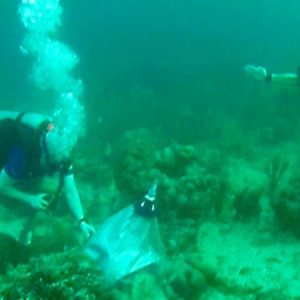
Students Study Coral Reefs As Part of Undergraduate Research
The health of the world’s coral reefs garners much media attention, especially related to bleaching and global warming and concerns about chemicals, such as sunscreens and other toxic elements, that could be causing damage to these fragile ecosystems. Two undergraduate students this summer worked with mentor Amy Ringwood, UNC Charlotte associate professor of biology, to research coral restoration and conservation issues.
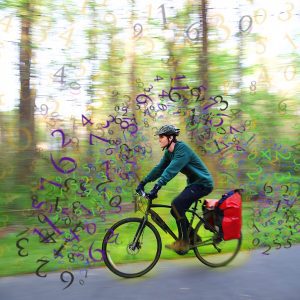
Mathematician Studies Dynamical Systems to Find Practical Solutions
Mathematical equations cycle through Kevin McGoff’s mind, as he pedals his bike on the system of greenways in north Charlotte.
The UNC Charlotte mathematician’s thoughts shift into gear, centered on problems associated with his field of study – dynamical systems. Dynamical systems serve as important mathematical models for a wide array of physical phenomena, relating to things such as weather modeling, systems biology, the spread of disease, and statistical physics, for example.

Observatory Director Brings Historic Solar Eclipse Into Focus
By now you’ve probably heard that a total solar eclipse is coming to North American skies on Monday, Aug. 21, 2017, and the Carolinas have a front row seat. UNC Charlotte Observatory director and astrophysicist Catherine Qualtrough of the College of Liberal Arts & Sciences shares the basics of this historic event.

CLAS Undergraduates Win Honors at Summer Research Symposium
More than 100 undergraduate students competed in the 2017 Summer Research Symposium, with three College of Liberal Arts & Sciences students named the winners. “These are the agile minds that will advance understanding in many areas that affect our lives,” distinguished researcher Pinku Mukherjee said of the participants in the university’s research programs.